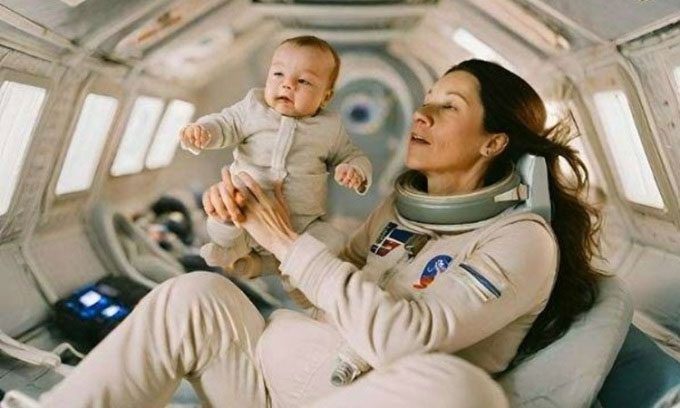The company Spaceborn United, founded by Dutch entrepreneur Egbert Edelbroek, is researching natural conception and reproduction in low-gravity environments such as Mars.
Despite the immense challenges of achieving safe childbirth in space, Edelbroek is confident that he will witness the first extraterrestrial baby born during his lifetime, AFP reported on November 14. “Humanity needs to become an interplanetary species,” Edelbroek emphasized. “If we want to settle independently outside Earth, we need to address the challenges of reproduction.”

Reproduction in space comes with many major challenges. (Photo: Spaceborn United).
Conception in space is fraught with difficulties. The primary challenge is the lack of gravity, which makes it easy for couples to drift apart. Therefore, Spaceborn United is the first company to seek methods for creating embryos in space. Starting with mice, the company plans to advance to handling human sperm and eggs, designing a type of dish that combines two cells to create a viable embryo. This embryo is then frozen to pause its development and protect it during the turbulent re-entry phase. Such embryos could be implanted into a woman on Earth to give birth to the first child conceived in space.
Another challenge is that bodily fluids will be pushed upwards in low-gravity environments instead of downwards as they do on Earth. “An adult human body can handle some differences, but we should not let a developing and vulnerable embryo endure that discrepancy. Therefore, we first need to create a perfect environment,” Edelbroek stated.
Researchers are exploring how to achieve conception in laboratory conditions simulating low gravity, but Edelbroek shared plans to launch mouse test cells by the end of this year, followed by human cells in 5 to 6 years.
“This is a sensitive topic. Human cells and embryos will be exposed to dangers from space, such as much higher levels of radiation than on Earth, and gravitational environments that embryos have never experienced before,” Edelbroek said.
Ethical concerns are one reason why space reproduction attracts the interest of private companies like Spaceborn rather than NASA, which is quite hesitant to fund sensitive topics. However, Edelbroek is confident that there is enough time to create the first baby conceived in space before he passes away.


















































